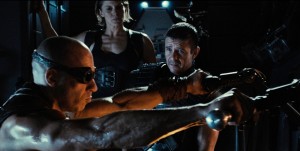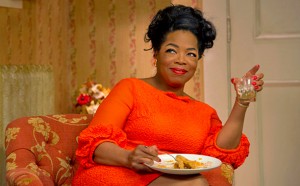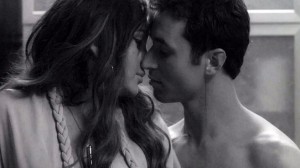Pulped Prisoners
 About half way through Denis Villeneuve’s haunting, absorbing, and morally problematic Prisoners, Keller Dover (Hugh Jackman) and Franklin Birch (Terrence Howard) are screaming at each other. Keller is insisting that he knows that Alex Jones (Paul Dano) is the man who has kidnapped and hidden his and Franklin’s young daughters; Franklin, in tears, keeps saying, “You don’t know!” He’s in tears because Keller has kidnapped Alex and is torturing him, and Franklin has reluctantly helped. (This isn’t much of a spoiler because the previews for the film tell you all of this, more or less.) This scene is intense and loud and both Howard and Jackman are convincingly falling apart, but I couldn’t help but agree with Fanklin. Keller is wrong; his obsession with Alex is based on an impotent rage and only a shred of evidence that Alex, who has an intellectual abilities of a 10-year-old, took his daughter. As Keller becomes more violent and more sure of himself, I found him less and less sympathetic and more and more hopeful that Detective Loki (Jake Gyllenhaal) would catch Keller before he finds Keller and Franklin’s daughters. It’s a strange, if fascinating experience to cheer against the film’s hero. Continue…
About half way through Denis Villeneuve’s haunting, absorbing, and morally problematic Prisoners, Keller Dover (Hugh Jackman) and Franklin Birch (Terrence Howard) are screaming at each other. Keller is insisting that he knows that Alex Jones (Paul Dano) is the man who has kidnapped and hidden his and Franklin’s young daughters; Franklin, in tears, keeps saying, “You don’t know!” He’s in tears because Keller has kidnapped Alex and is torturing him, and Franklin has reluctantly helped. (This isn’t much of a spoiler because the previews for the film tell you all of this, more or less.) This scene is intense and loud and both Howard and Jackman are convincingly falling apart, but I couldn’t help but agree with Fanklin. Keller is wrong; his obsession with Alex is based on an impotent rage and only a shred of evidence that Alex, who has an intellectual abilities of a 10-year-old, took his daughter. As Keller becomes more violent and more sure of himself, I found him less and less sympathetic and more and more hopeful that Detective Loki (Jake Gyllenhaal) would catch Keller before he finds Keller and Franklin’s daughters. It’s a strange, if fascinating experience to cheer against the film’s hero. Continue…



